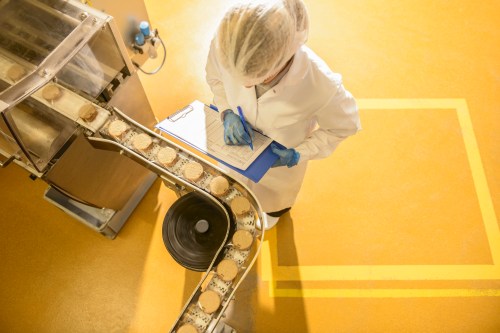Many of us used to solely worry about our gut health when something was very off. “What did I eat?” was always attached to any concern related to our digestive system’s upkeep, and was often said in response to some form of agonizing stomach pain or nausea. But today, we know so much more about the importance of maintaining a balanced gut microbiome, and many have incorporated simple steps into their daily wellness routine—eating fermented foods, taking probiotics, and staying hydrated—geared towards ensuring they have diverse microflora.
Experts in This Article
functional medicine doctor and founder of VibrantDoc
South Carolina-based gastroenterologist and author of Fiber Fueled
Another one of those proactive measures is drinking tea on the reg. “What you do regularly is much more powerful than what you do once in a while,” says Stacie J. Stephenson, MD, Chair of Functional Medicine for Cancer Treatment Centers of America, board member of The American Nutrition Association, and author of Vibrant: A Groundbreaking Program to Get Energized, Reverse Aging, and Glow. “For optimal gut health, I advise drinking at least one or two cups of green tea every day. Over time, your gut will realize both digestive benefits and other major health perks, like lower inflammation.” Here, she shares how to make gut-healthy tea.
How to make tea for gut health, according to a doctor
1. Opt for the types of tea that offer the most gut-friendly benefits.
Not surprisingly, green tea tops the list as the most gut-healthy tea out there. Dr. Stephenson calls it the “star” when it comes to your microbiome. “The polyphenols it contains seem to promote the healthy growth of Bifidobacterium, a type of friendly flora that increases your microbiome health and diversity, which can in turn help to reduce or eliminate digestive symptoms,” she explains. Drinking up to five cups per day is how you reap the benefits.
Dr. Stephenson also recommends fermented teas like black, oolong, Pu-erh, and Fuzhuan tea. “The fermentation process they undergo means they contain gut-friendly bacteria and have been shown to improve microbiome diversity and the ratio of Firmicutes to Bacteroidetes, making for a healthier microbiome,” she explains. “This, in turn, improves digestive health, as well as immune function and even a good mood. This is because the microbiome is a major producer of the feel-good hormone serotonin.”
Peppermint and fennel teas don’t contain any tea leaves, so they’re not technically teas—but because you can brew them and they contain many microbiome benefits, they fit the gut-friendly bill. Peppermint tea is “an age-old digestive remedy that is especially good for relaxing the gastrointestinal tract and relieving pain, due to the effects of peppermint oil,” Dr. Stephenson says. Likewise, fennel tea also relaxes the digestive muscles and helps relieve gas and bloating. “This is why fennel seeds are often chewed as a digestive aid after a meal—you may see them offered at restaurants after a meal,” she says. She recommends using these any time digestive symptoms flare up.
2. Avoid adding sugar or sweetener.
“One of the worst things to do with tea is pouring in lots of sugar, as this can encourage the growth of more pathogenic, inflammatory gut bacteria, which could partially negate any beneficial anti-inflammatory effects of your tea,” Dr. Stephenson says.
Some health experts also say using Splenda, or other artificial sweeteners, isn’t exactly a great substitution either. A study published in the International Journal of Occupational and Environmental Health found that mice who were fed sucralose (the main ingredient in Splenda) daily throughout their lives eventually developed leukemia and other blood cancers. While the Food and Drug Administration has deemed artificial sweeteners as safe, it’s still something to be mindful of.
3. Stir in gut-friendly spices.
“Ginger reduces inflammation and also improves intestinal function,” Will Bulsiewicz, MD, a gastroenterologist and the author of Fiber Fueledpreviously told Well+Good. Ginger has long been used to ease digestion because is has phenolic compounds which are known to relieve irritation in the GI tract. The doctor adds that it is also often used to treat nausea and morning sickness associated with pregnancy, too.
Turmeric is another excellent option.”Turmeric has powerful anti-inflammatory properties because it contains curcumin. This can help reduce inflammation intestines and improve intestinal barrier function,” Dr. Bulsiewicz says. This means that could be beneficial in helping protect against leaky gut, which is when the lining of the intestines is weakened.
Lastly, cinnamon. “Cinnamon has antioxidant and anti-inflammatory properties in addition to protecting against metabolic disorders, like type 2 diabetes,” says Dr. Bulsiewicz. Adding cinnamon is also a natural way to sweeten up your coffee without using sugar.
Learn more about the health benefits of cinnamon:
4. Brew it at the right temperature.
“Brewing temperatures are less gut-specific than tea-specific,” Dr. Stephenson says. If you are brewing black tea, use boiling water. Other teas, like green, white, herbal, and oolong are too delicate to pour boiling water over. (It’ll make them taste bitter, which means you’ll be less inclined to want to drink them daily.) Brew these with water that hasn’t quite boiled.
Are there any digestive drawbacks to drinking tea?
According to the doctor, not really. “Most teas are probably fine for gut health—and if they don’t help, they probably won’t hurt unless you are highly caffeine-sensitive,” according to Dr. Stephenson. “Caffeine is a diuretic, meaning it flushes water out of your system. It can also be irritating to the GI tract, causing irritable bowel syndrome symptoms, from cramps and bloating to diarrhea,” Dr. Stephenson says. While some can drink caffeinated tea without any problems, if you have gut issues (like IBS), she recommends cutting back or quitting caffeine as a good place to start. She notes that black tea has the most caffeine; other teas like green, white, and oolong contain considerably less. Herbal tea contains no caffeine.
The only tea the doctor says to be very cautious of in the name of gut health is senna tea, which some people use to help with constipation, but can also cause digestive symptoms like cramps and diarrhea. “Even small amounts used regularly might lead to laxative dependence. I would definitely avoid it in favor of more fiber in the diet,” she explains.
Oh hi! You look like someone who loves free workouts, discounts for cutting-edge wellness brands, and exclusive Well+Good content. Sign up for Well+, our online community of wellness insiders, and unlock your rewards instantly.
Sign Up for Our Daily Newsletter
Get all the latest in wellness, trends, food, fitness, beauty, and more delivered right to your inbox.
Got it, you've been added to our email list.










